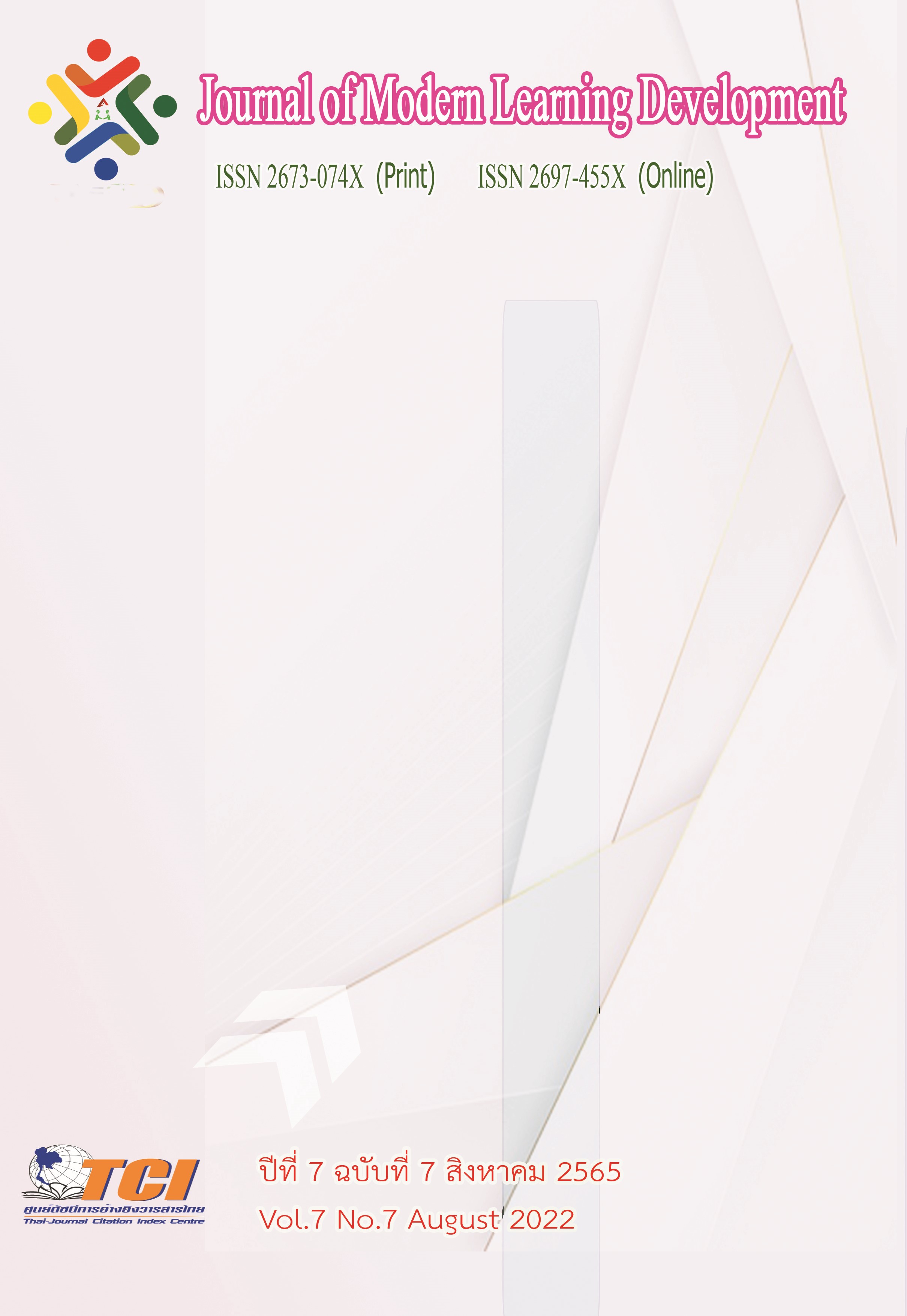Active Education Administration for Hybrid Education 4.0 in Higher Education Institutions
Main Article Content
Abstract
In order to achieve the goal of Thailand 4.0, there is a need for cooperation from relevant parties to drive the entire system of active administration for hybrid education 4.0 in higher education institutions with the concept of both Hybrid Education and Hybrid Learning. Important factors in order to effectively accomplish the goal consisted of the improvement of education administration aiming for potential education for every age group, every level, everywhere and every time. Administrators and education academics have to understand major features of education 4.0 according to the educators in national education framework, the main objective of national education framework integrating national education plan for the year 2017-2036 with national strategy, the main objective of national strategy in education and the development framework. Educational leaders, and both public and private academics have to understand education 4.0 and take action accordingly to responsible roles and duties. To drive and distribute education opportunity for accessible higher education is a mission of higher education institutions by using cognitive process for life-long personal development, by having clear direction and preparation plan in every aspects in order to achieve good quality of living, survive in society, having knowledge and ethics, and well-equipped with skills for the 21st century. Promotion of STEM Education (Science, Technology, Engineering, Mathematics) is necessary to enable youth to understand and wisely update to Thailand 4.0 and also bring about innovation as a foundation for national development.
Article Details
References
พระวิระพันธ์ ติกฺขปญฺโญ (เสียงเย็น). (2562). สถาบันอุดมศึกษาเพื่อการพัฒนาคนในยุค Thailand 4.0 เป็นขุมปัญญาของประเทศ.วารสาร มจร. หริภุญชัยปริทรรศน์. วิทยาลัยสงฆ์ลำพูน มหาวิทยาลัยมหาจุฬาลงกรณราชวิทยาลัย. 3 (3), 95-111.
เพ็ญจันทร์ สินธุเขต. (2560). การศึกษายุดนี้ (ยุคดิจิทัล) : Thailand 4.0. . ประชุมวิชาการระดับชาติ คณะครุศาสตร์ มหาวิทยาลัยราชภัฏลำปาง. ลำปาง: มหาวิทยาลัยราชภัฏลำปาง.
สุเมธ แย้มนุ่น. (2558). เอกสารประกอบการนำเสนอ: การดำเนินการจัดทำแผนอุดมศึกษาระยะยาว 15 ปี ฉบับที่ 3 (พ.ศ.2560-2574). บรรยาย 28 สิงหาคม 2558. กรุงเทพมหานคร: รามาการ์เด้นส์.
สุคนธ์ สินธพานนท์. (2560). ครูยุคใหม่กับการจัดการเรียนรู้ สู่การศึกษา 4.0. . กรุงเทพมหานคร: ห้างหุ้นส่วนจำกัด 9119 เทคนิคพริ้นติ้ง.
สมัครสมร ภักดีเทวา และเอกนฤน บางท่าไม้. (2564). การเรียนรุ้ยุคใหม่กับการเรียนการสอนออนไลน์ในสถาบันอุดมศึกษา. วารสารสุโขทัยธรรมาธิราช. 34 (1), 1-18..
เทื้อน ทองแก้ว. (2563). การออกแบบการศึกษาในชีวิตวิถีใหม่ (Design-Based New Normal) : ผลกระทบจากการแพร่ระบาด COVID-19. กรุงเทพมหานคร: สำนักงานเลขาธิการคุรุสภา.
วิจารณ์ พานิช. (2560). เส้นทางสู่คุณภาพการศึกษายุคประเทศไทย 4.0. . การประชุมเชิงวิชาการทางการศึกษาระดับชาติ ครั้งที่ 4 มหาวิทยาลัยวงษ์เชาวลิตกุล ศูนย์ประชุมสตาร์เวลล์ จังหวัดนครราชสีมา. นครราชสีมา: มหาวิทยาลัยวงษ์ชวลิตกุล.
Graham, C.R. (2012). Introduction to Blended Learning. Online. Retrieved 2017, December 8, from http://www.Publicationshare.com/c1-Charles-Graham-BYU—Definitions-of-Blended.pdf/.
Saliba, G., Rankine L., and Cortez H. (2013). Learning and teaching unit 2013. Fundomentols of Hybrid Learning. Retrieved 2017, December 9, 2017.
Yaso, M. (2017). 21st Century Learning. Online. Retrieved 2017, December 9. , from http://www.gotoknow.org/posts/542974.


